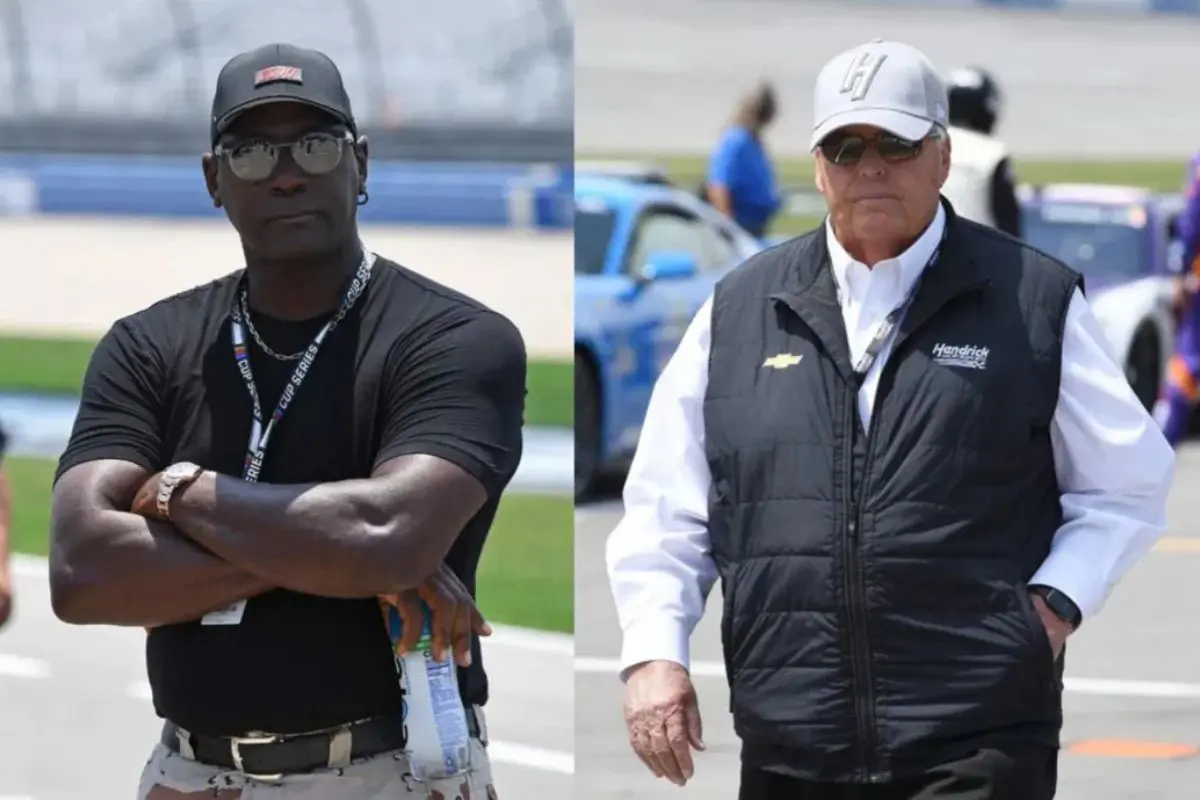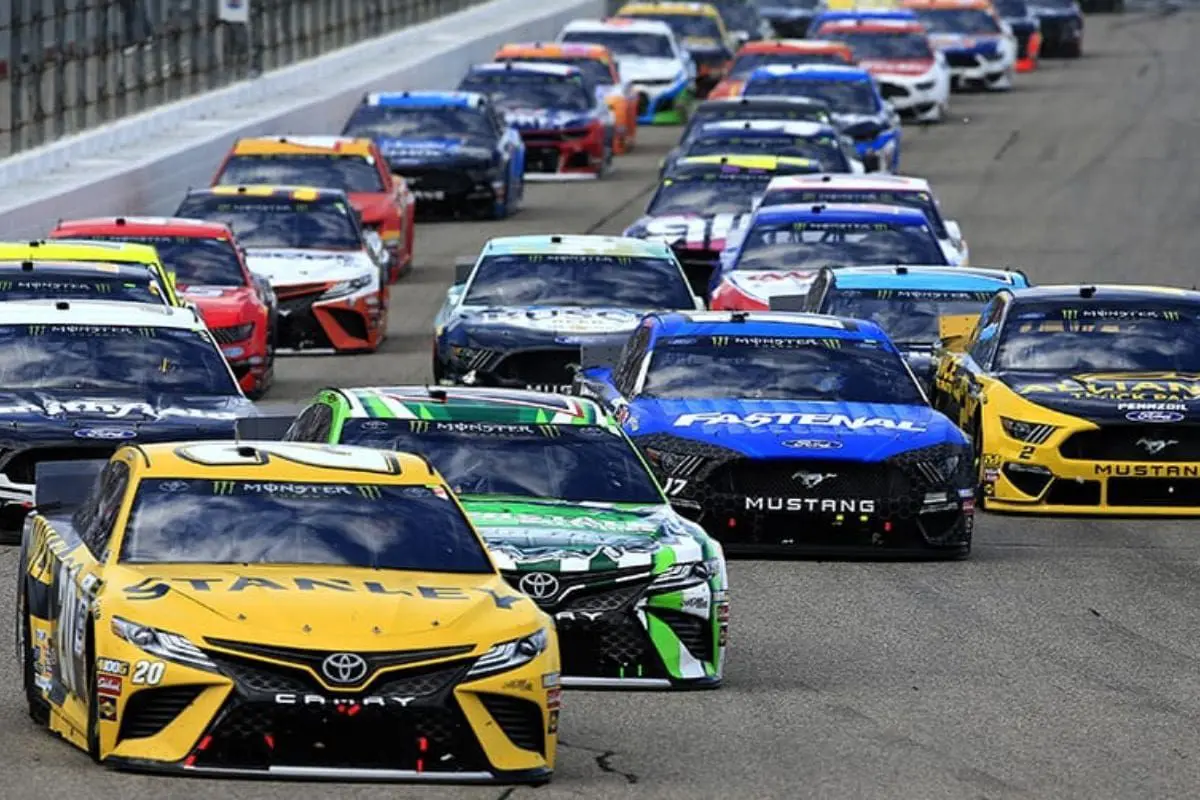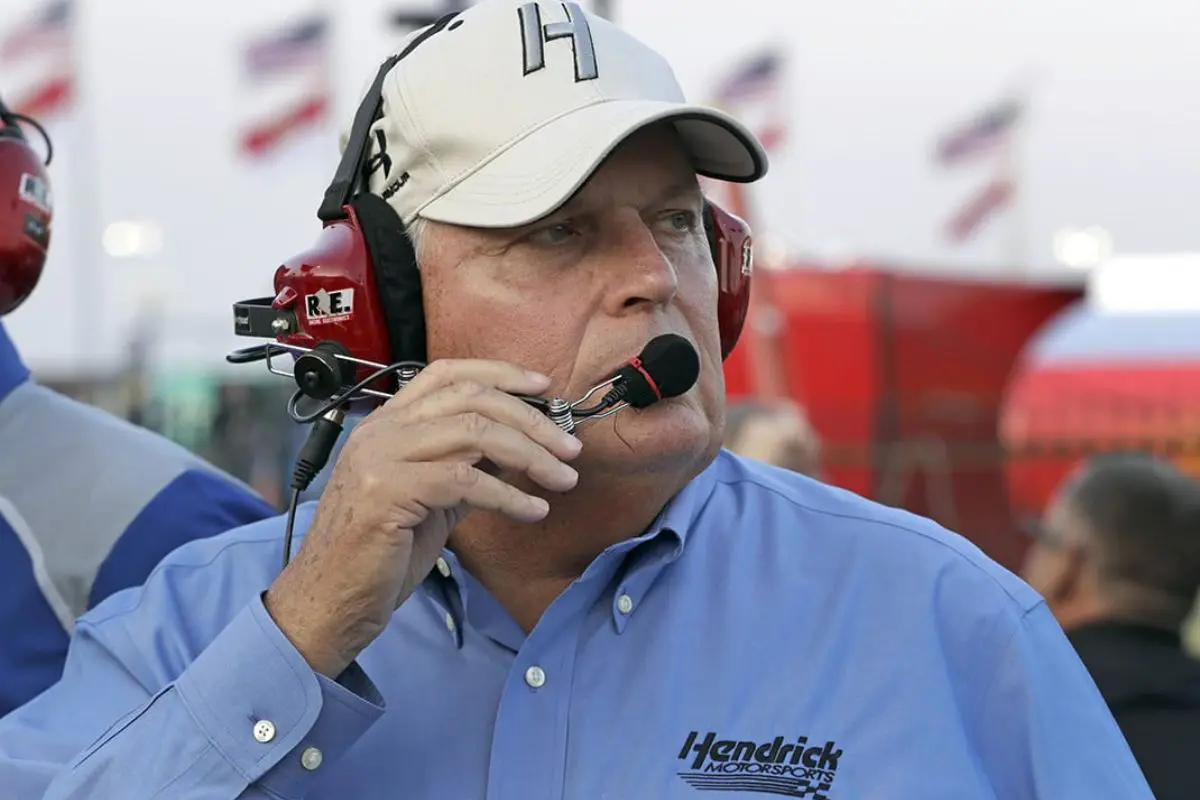Rick Hendrick and Michael Jordan Clash: Rick Hendrick‘s tactical maneuvering toward Michael Jordan’s growing influence in NASCAR highlights a crucial shift in the sport’s competitive landscape. As financial stakes escalate, Hendrick’s efforts reflect a keen understanding of the necessity for groundbreaking collaborations and data-driven strategies. This alignment not only aims to enhance his team’s performance but also raises questions about the dynamics of unity versus competition within the NASCAR ecosystem. What implications might this have for traditional power structures and emerging partnerships in the racing world? The unfolding narrative may reveal more than just a rivalry; it could redefine the essence of teamwork in high-stakes motorsports.
Key Highlights
- Rick Hendrick seeks competitive advantage in NASCAR by exploring partnerships and sponsorships, inspired by Michael Jordan’s success in sports.
- The charter deal reflects Hendrick’s caution, emphasizing stability and fairness amid financial challenges facing NASCAR teams.
- Hendrick is focused on using data and technology to enhance team performance and operational strategies in the high-pressure NASCAR environment.
- The evolving landscape in NASCAR demands strategic decision-making, with Hendrick prioritizing metrics analysis to inform racing strategies effectively.
- Hendrick’s ambitions align with NASCAR’s goal of enhancing competitiveness and attracting external investors to improve the sport’s economic framework.
Curtis Polk’s Belief in Unity Shaken
In NASCAR, Curtis Polk’s conviction in the importance of unity among teams has been greatly undermined. The recent signing of a new charter deal by 13 out of 15 teams highlights a notable divergence in tactical objectives among NASCAR stakeholders. Polk, a prominent advocate for the Racing Team Alliance (RTA), has long championed the notion that collective alignment is crucial for maximizing the sport’s potential. His belief is now called into question, as only 23XI Racing and Front Row Motorsports opted out of the agreement, signaling a rift that could have broader implications.
“Until we are all aligned and paddling the boat in the same direction, we’ll never be able to reach the full potential that NASCAR has.” -(polk)
The motivations behind this split are complex. While Polk emphasizes a unified front to achieve common goals, the divergent decisions of these teams reflect individual aspirations that may prioritize immediate gains over long-term collaboration.
This schism not only challenges the viability of the RTA’s collective bargaining power but also raises concerns regarding the tactical coherence of NASCAR as a whole.
Rick Hendrick’s participation in the charter deal further complicates matters, as it suggests a willingness among some teams to adopt a more fragmented approach, potentially jeopardizing Polk’s vision.
Ultimately, the current landscape reveals that without a concerted effort to reconcile these differences, the prospects for achieving a shared vision within NASCAR remain bleak.
The path forward necessitates a reevaluation of priorities and a reinstating of the dialogue surrounding unity among teams, lest the sport lose its competitive edge in an increasingly fragmented environment.
Rick Hendrick’s Perspective and Motives
Rick Hendrick’s decision to sign the new charter deal reflects a complex interplay of pragmatism and resilience amid a challenging economic landscape in NASCAR. After two years of relentless negotiations, Hendrick expressed fatigue, revealing the emotional toll of maneuvering an uncertain financial future. His acknowledgment of exhaustion emphasizes a broader narrative of a sport grappling with potential losses projected at $200 million over five years, highlighting the urgency for change.
Hendrick’s motives extend beyond mere survival; they encompass a tactical vision for NASCAR’s sustainability. By aligning himself with the Race Team Alliance’s goals, he champions initiatives that promise to fortify the sport’s economic framework. The necessity for permanent charters is a critical aspect of this vision, as it could entice external investors to alleviate the burdensome costs associated with the Next-Gen car. Such investments are crucial for not only individual teams but for the sport as a whole.
However, the circumstances surrounding the charter deal reveal a less favorable dynamic. The imposition of a six-hour ultimatum by NASCAR reflects a heavy-handed approach that left Hendrick with little room for negotiation. Yielding to this strain, while seemingly pragmatic, raises questions about the long-term viability of such agreements.
Hendrick’s actions demonstrate a tension between immediate compliance and a desire for a more equitable and sustainable racing environment. His hope for rewards stemming from Michael Jordan’s vigorous pursuits signifies a broader aspiration for a revitalized NASCAR landscape, one that is both profitable and inclusive for all stakeholders involved.
Hendrick’s Stance on Potential Changes
Hendrick’s long-standing commitment to the charter system accentuates his cautious approach toward potential changes within NASCAR. With a legacy spanning over 40 years, Rick Hendrick has not only built a formidable racing empire but also cultivated a deep understanding of the intricate balance within the sport’s operational framework.
His decision to distance himself from Michael Jordan’s venture highlights a tactical mindset that prioritizes stability and fairness for all teams involved.
In consideration of possible alterations to the charter agreements, Hendrick’s perspective emerges as a critical voice advocating for consistency. He articulated his concerns regarding any preferential treatment that might arise for select teams, emphasizing that any modifications should apply uniformly across the board.
“I think NASCAR, if they change anything for those two teams, that will go across the board. I’m pretty sure that would be the right thing to do because we, the teams that signed at the deadline, and then they make another deal a little bit better somewhere. That would be wrong.”-(hendrick)
This insistence on equitable treatment reflects Hendrick’s commitment to the integrity of the charter system, which serves as a foundational element for team operations and competitive equity.
Pressure from 23XI Racing and Front Row Motorsports
The ongoing strain exerted by 23XI Racing and Front Row Motorsports has intensified discussions surrounding the future of NASCAR’s charter system. As these teams push for considerable changes, the implications reverberate throughout the sport, particularly concerning the allocation and management of charters.
The increased media revenue, while a positive development, has not come without trade-offs, particularly in areas such as driver appearance requirements and the distribution of charter sales. The request for permanent charters, which NASCAR has dismissed, remains a contentious point, signaling the friction between traditional operators and newer entrants in the sport.
If 23XI Racing and Front Row Motorsports succeed in their demands, it could set a precedent for universal changes within the charter framework, which has historically favored established teams like Rick Hendrick’s. Hendrick, a stalwart in NASCAR, has expressed interest in being included in any negotiations, reflecting a calculated approach to maintain his competitive edge.
However, the doubt directed at Hendrick by commentators highlights a dichotomy in the sport; his successful tenure has sometimes been perceived as leveraging existing advantages rather than advocating for reform.
A 23XI official has attempted to assuage concerns raised by Hendrick, suggesting that any adjustments would not undermine the foundational elements of the charter system. Yet, the reality remains that as the 23XI and Front Row teams continue to exert influence, the landscape of NASCAR may be on the cusp of considerable transformation, necessitating careful navigation by all stakeholders.
Curtis Polk’s Message of Unity
Acknowledging the complexities of the current NASCAR landscape, Curtis Polk, co-owner of 23XI Racing, has highlighted a message of unity amidst the ongoing charter negotiations. As teams grapple with the severe realities of NASCAR’s dominant bargaining position, Polk’s approach seeks to foster collaboration rather than conflict.
“We are David facing Goliath, Please don’t ask me about my charter. I don’t want to disparage NASCAR and lose it.”-(polk)
Polk’s commitment to unity was poignantly demonstrated during the Darlington race. This sentiment reflects a tactical awareness of the delicate balance required to maintain a constructive relationship with NASCAR while advocating for fairer terms for all stakeholders involved.
“We’re not trying to do something that benefits 23XI to the detriment of the sanctioning body, the [NASCAR-owning] France family, or any of the other teams, the drivers, the fans, We wanted to do something that would help everybody. We think that the contract that was presented to sign had terms that we could not sign.”-(polk)
The urgency surrounding the charter negotiations has created a tense atmosphere, with many teams feeling compelled to acquiesce to unfavorable terms.
“We notified NASCAR what issues needed to be addressed, in writing, at the deadline, We are interested in engaging in constructive discussions with NASCAR to address these issues and move forward in a way that comes to a fair resolution while strengthening the sport we all love.”-(23xi team)
In response to Rick Hendrick’s concerns regarding the potential ramifications of a revised agreement, Polk reassured that 23XI Racing’s intentions are not self-serving.
As 23XI Racing navigates these turbulent negotiations, their commitment to open dialogue with NASCAR is crucial. Polk’s message emphasizes a collective desire to strengthen the sport while ensuring equitable opportunities for all participants, laying the groundwork for a more unified NASCAR future.
News in Brief: Rick Hendrick and Michael Jordan Clash
The tactical actions of Rick Hendrick in seeking collaboration with Michael Jordan highlight the evolving dynamics within NASCAR, where partnerships and data-driven approaches are vital for success. The rising financial stakes amplify the necessity for groundbreaking strategies to secure competitive advantages. As stress mounts from emerging teams like 23XI Racing and Front Row Motorsports, the emphasis on unity and collaboration within the sport remains fundamental. Hendrick’s pursuit reflects a broader trend in motorsports towards leveraging influential figures to improve performance and marketability.
ALSO READ: Rick Hendrick Breaks Away from Michael Jordan’s Plans Amid 75-Year-Old’s Frustration




